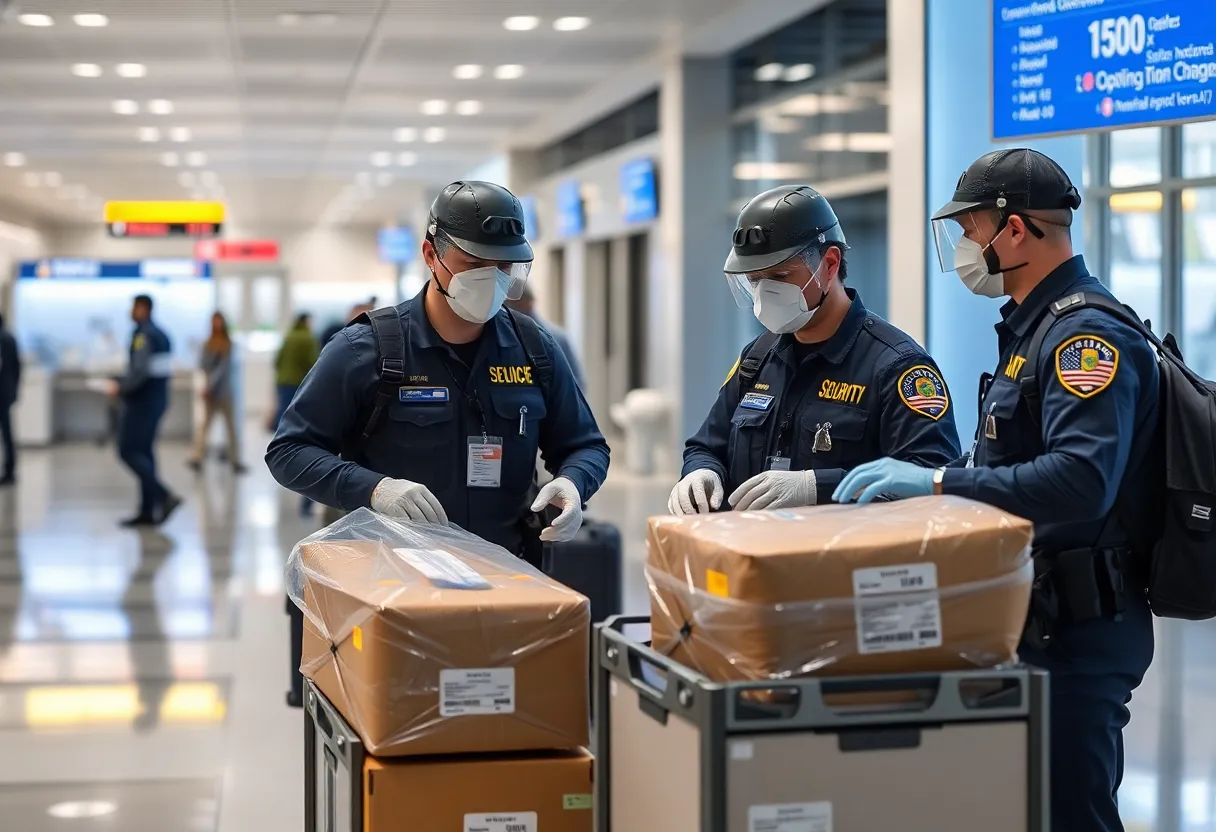

Federal agents at an airport examine packages suspected of containing smuggled biological materials.
Want to target the right audience? Sponsor our site and choose your specific industry to connect with a relevant audience.
Prominent brand mentions across targeted, industry-focused articles
High-visibility placements that speak directly to an engaged local audience
Guaranteed coverage that maximizes exposure and reinforces your brand presence
Interested in seeing what sponsored content looks like on our platform?
May’s Roofing & Contracting
Forwal Construction
NSC Clips
Real Internet Sales
Suited
Florida4Golf
Click the button below to sponsor our articles:
Sponsor Our ArticlesChengxuan Han, a doctoral student from Wuhan, was arrested at Detroit Metropolitan Airport for allegedly smuggling biologically regulated materials into the U.S. The FBI’s investigation revealed that Han misrepresented shipments of roundworms and concealed items, raising significant biosafety concerns. This case is part of a larger inquiry into smuggling operations involving Chinese nationals at U.S. academic institutions. If convicted, Han could face up to 20 years in prison, highlighting serious national security issues regarding international research collaborations.
Detroit — Chengxuan Han, a Chinese doctoral student from the College of Life Science and Technology at Huazhong University of Science and Technology in Wuhan, has been arrested for allegedly smuggling biological materials into the United States. The arrest took place on June 8 at Detroit Metropolitan Airport. Han faces charges of smuggling goods and making false statements to federal officials.
According to federal authorities, Han was attempting to import biological materials related to roundworms, which are strictly regulated and require a government permit for importation. An investigation led by the FBI revealed that she sent four packages from China to staff members working at a laboratory at the University of Michigan between September 2024 and March 2025.
The packages in question were misrepresented, with some contents concealed between the pages of a book. This shipment did not comply with U.S. regulations, raising serious concerns about biosafety. Upon her arrival in the U.S., Han allegedly lied to customs officers about the nature of her shipments. Furthermore, she reportedly deleted contents from her electronic devices three days before entering the country, claiming she sought a “fresh start.”
Han’s case is part of a broader security investigation focusing on Chinese nationals linked to the University of Michigan. She is the third Chinese national charged with similar offenses in less than two weeks. Last week, two other individuals, Yunqing Jian and Zunyong Liu, were arrested for smuggling a toxic fungus known as Fusarium graminearum, which poses significant risks to agriculture.
Among the materials Han was accused of smuggling were Nematode Growth Medium (NGM) and plasmids used in research involving the nematode worm species C. elegans. The University of Michigan has stated that it is taking the allegations seriously and is cooperating fully with federal investigations.
If convicted, Han could face a maximum of 20 years in federal prison. She made her initial court appearance on June 9, with a detention hearing scheduled for June 11. Federal authorities have criticized these smuggling activities as a significant security concern, emphasizing the importance of strict adherence to biosafety regulations to protect national interests.
The U.S. government has expressed alarm regarding a discernible pattern of smuggling operations that may involve foreign entities attempting to compromise academic institutions within the country. In response to the allegations against Han and other nationals, the Chinese government has highlighted the importance of compliance with local laws and condemned any instances of political manipulation surrounding these cases.
The situation continues to unfold, with federal authorities monitoring any potential links between these smuggling activities and broader security issues connected to international research collaborations. The University of Michigan’s commitment to adhering to biosafety standards will remain under scrutiny as federal investigations progress.
News Summary Novi, Michigan now features Putting Edge, an immersive glow-in-the-dark mini golf venue that…
News Summary Michigan State University's football program has enhanced its 2026 recruiting class with the…
News Summary FASORP has filed a lawsuit against the University of Michigan and the Michigan…
News Summary The U.S. Department of Health and Human Services has initiated an investigation into…
News Summary TORC Robotics and Pro Services are set to generate 750 new jobs in…
News Summary Gas prices in Michigan have soared to a record high of $3.30 per…